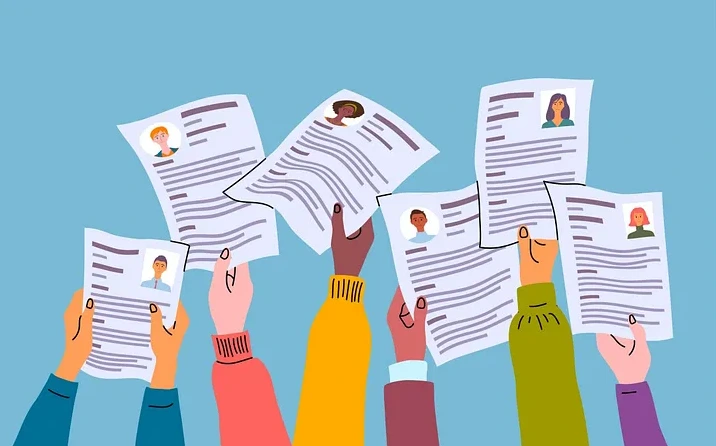How to Build a Strong Resume Before CollegeApril 10, 2025

A well-crafted resume is an essential tool for college applications, internships, and even
scholarships. While many high school students assume they don’t have enough experience to
create a strong resume, the truth is that colleges look for more than just work experience. They
want to see leadership, initiative, academic achievements, and community involvement. Here’s
how you can start building a compelling resume before you even set foot in college.
1. Focus on Academics and Extracurricular Activities
Your academic performance is one of the most critical aspects of your resume. Admissions
officers and potential employers value students who demonstrate a commitment to learning.
Highlight your GPA (if it’s strong), honors courses, AP/IB classes, or any academic awards you
have received.
Beyond the classroom, extracurricular activities showcase your passions and commitment. Join
clubs that align with your interests and consider taking on leadership roles. Whether it’s the
debate team, student government, or the robotics club, active participation in school
organizations demonstrates teamwork, dedication, and leadership skills. If you start early, you’ll
have plenty of experiences to include on your resume by the time you apply for college.
Also Read- How College Counselors Help Students Get Into Colleges
2. Gain Real-World Experience Through Internships and Part-Time Jobs
While internships and part-time jobs might seem more relevant for college students, there are
plenty of opportunities available for high schoolers. Some companies offer internships to
motivated students, and even volunteer work at a local business can add valuable experience.
If you can’t find an internship, a part-time job in customer service, retail, or tutoring can help
develop communication, problem-solving, and time-management skills. Even if your job isn’t
directly related to your intended college major, it still demonstrates responsibility, work ethic,
and initiative.
3. Develop Leadership Skills
Leadership experience is a key factor that makes a resume stand out. Colleges and employers
appreciate students who take charge and inspire others. You don’t have to be the student body
president to showcase leadership—you can lead a community service project, organize an event,
or take initiative in a club.
If your school offers leadership programs, such as peer mentoring or student ambassador
programs, take advantage of them. Additionally, consider starting your own initiative, like
launching a tutoring program for younger students or organizing a fundraiser for a local charity.
These experiences not only strengthen your resume but also give you compelling stories to share
in college essays and interviews.
4. Get Involved in Community Service and Volunteering
Community service is a great way to develop a well-rounded resume. Colleges appreciate
students who give back to their communities and show compassion for others. Volunteer at local
shelters, hospitals, libraries, or nonprofits. If possible, take on a leadership role within a
volunteer organization to demonstrate initiative.
Long-term volunteer commitments are particularly impressive, as they show dedication and a
genuine passion for helping others. If you’ve volunteered consistently for several years, it
reflects responsibility and commitment—two qualities that colleges highly value.
5. Take Advantage of Online Courses and Certifications
Online learning platforms provide an excellent opportunity to gain knowledge and skills beyond
the classroom. Websites like Coursera, edX, and Udemy offer free and paid courses on subjects
ranging from business and coding to creative writing and finance.
Certifications from well-known institutions add credibility to your resume. For example,
completing an online course in finance from a university like Cambridge or taking a digital
marketing certification from Google can demonstrate your eagerness to learn and improve your
skill set.
6. Build a Personal Project or Portfolio
A personal project can set you apart from other applicants. If you have a passion for writing, start
a blog. If you love coding, create an app or website. If you’re into photography or graphic
design, put together a portfolio showcasing your best work.
These projects demonstrate creativity, self-motivation, and discipline—qualities that colleges and
future employers appreciate. Plus, they give you concrete examples of your skills that can be
shared during college interviews or in scholarship applications.
7. Work on Your Resume Format and Presentation
Once you have gathered experiences, it’s time to put them together in a professional format.
Keep your resume clean, concise, and easy to read. Use bullet points to highlight your
achievements and responsibilities but avoid overly long paragraphs. Follow proper formats, you
can find an example of this online.
Avoid adding unnecessary details like middle school activities unless they are highly relevant.
Keep your resume ideally to one page, focusing on the most impactful experiences.
Final Thoughts
Building a strong resume before college is about more than just listing experiences—it’s about
showing how you’ve made the most of your opportunities and how you plan to contribute to your
future college community. Take the time to develop skills, seek leadership roles, and gain
experiences that align with your interests. By doing so, you’ll not only craft a compelling resume
but also set yourself up for success in college and beyond.




